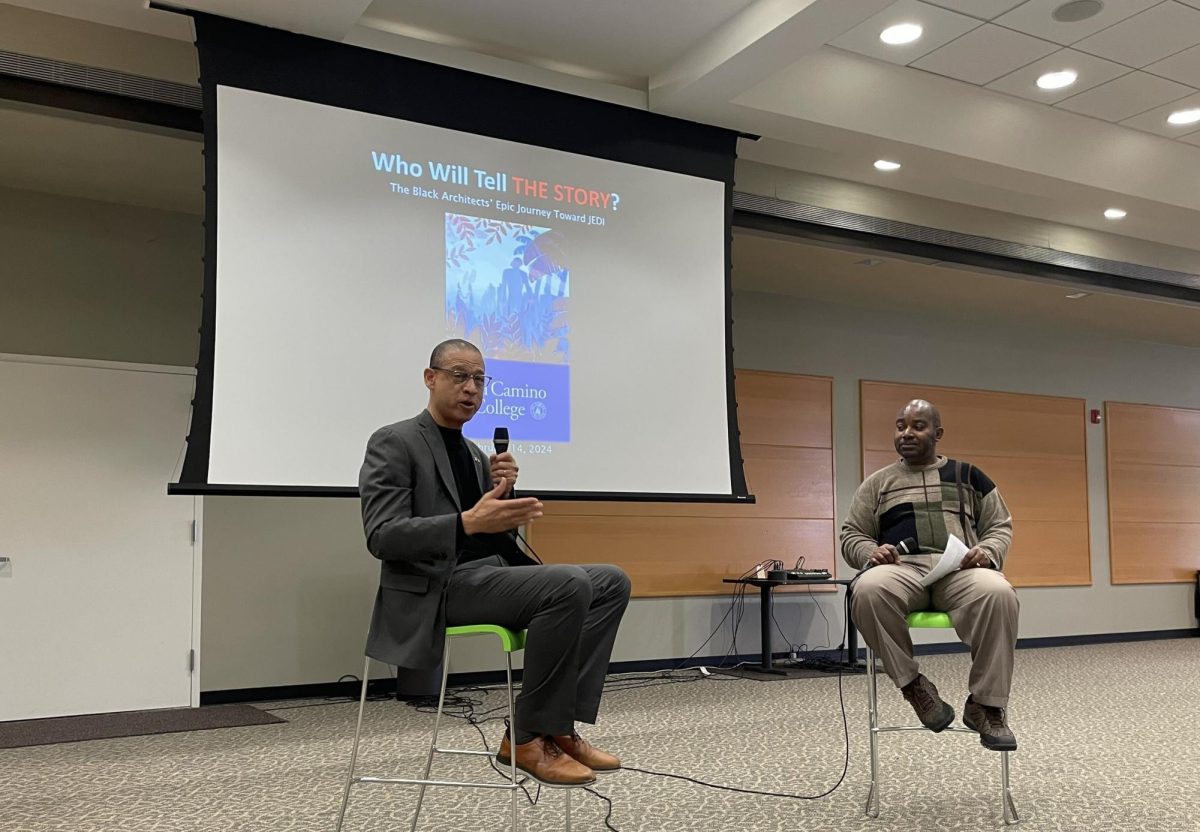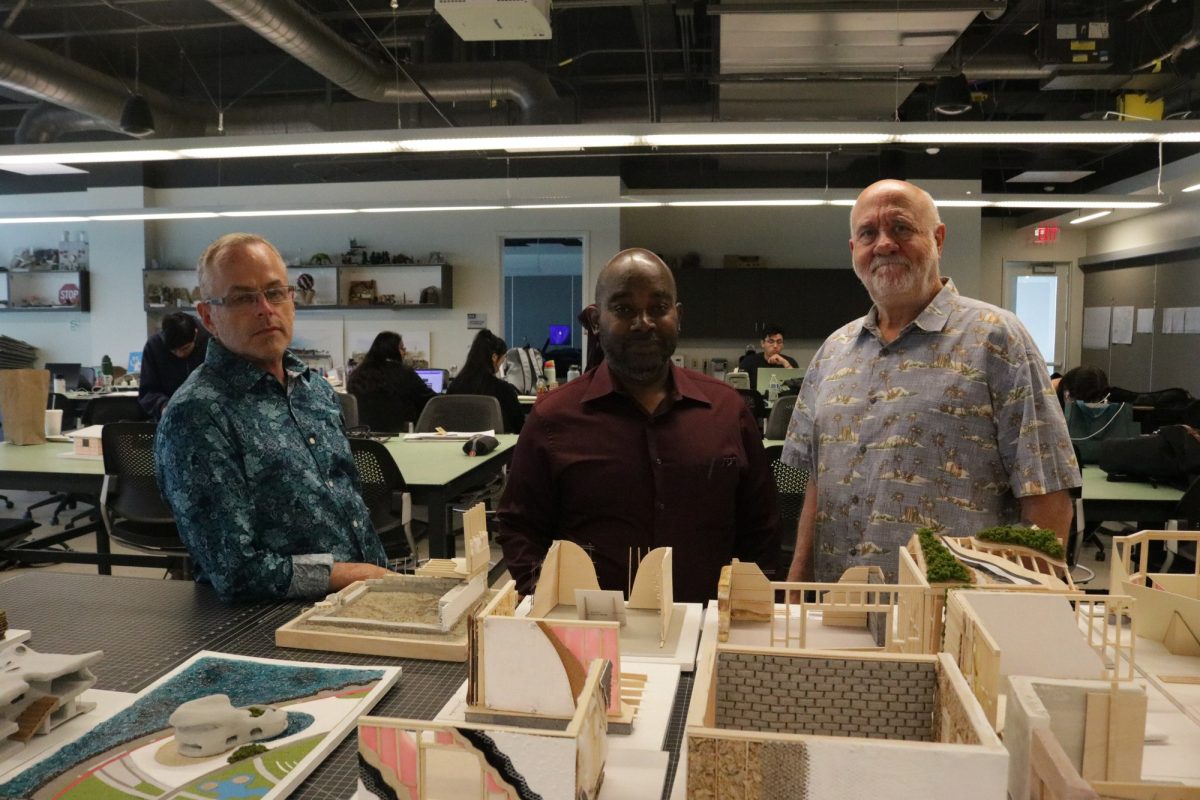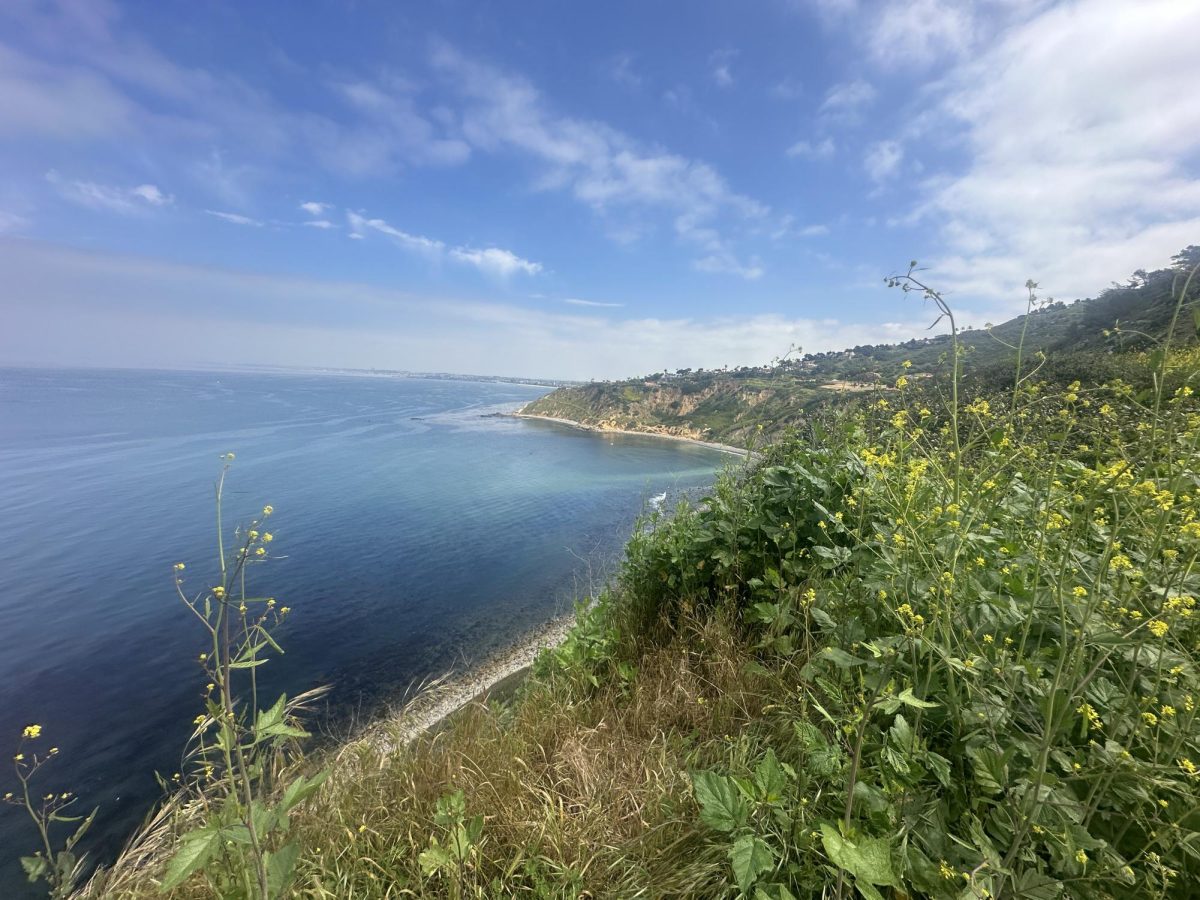El Camino continued its celebration of Black History Month with a conversation about Black architects and how they shaped Southern California in the East Dining Room on Feb. 14.
Diversity, Equity, Inclusion and Accessibility Librarian Linda Cooks opened the conversation by introducing the day’s speakers: Reuben E. Jacobs, residential designer and adjunct professor for the Architecture Department, and Steven Lewis, architect and social justice advocate.
The speakers discussed Black architects who have contributed to Southern California’s modern landscape, from Los Angeles International Airport’s futuristic Theme Building to the loopy signage for the Beverly Hills Hotel.
Yet the names of these architects are not widely known, Lewis said.
“We have to tell our story. We brought with us this skill and this capability. And yet we’re hidden in the background,” he said.
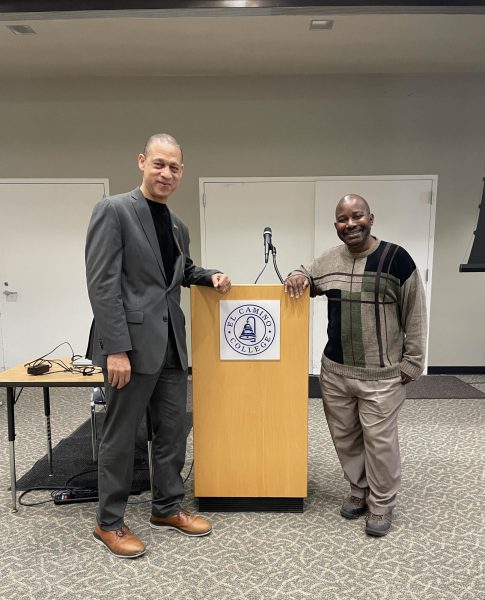
The presentation began with a quote: “A journey of a thousand miles begins with a single step.”
The screen behind the speakers then displayed an image of Samuel L. Jackson as Mace Windu, a character from Star Wars, wielding a purple lightsaber with a group of Jedi.
“I like to say we are Jedi Masters,” Lewis said. “We do need a lightsaber to deal with all this injustice.”
Lewis followed with a summary of African American history, from slavery to Reconstruction to the modern day.
The audience, which included faculty members and dozens of architecture students, was then introduced to some of the prominent Black architects in Southern California.
There was Vertner Tandy, who designed the mansion of Madame C.J. Walker, the first self-made American female millionaire.
Also present was Paul R. Williams, the architect behind several modernist buildings, including the Theme Building at the Los Angeles International Airport.
The speakers also presented Norma Merrick Sklarek, the first African American woman to become a licensed architect in California, who also happens to have a personal connection to Lewis.
“She hired both of my former partners,” Lewis said. “And they kind of grew up under Norma’s wing. Norma was actually very close friends with my uncle.”
The conversation then progressed into contemporary Black architecture. Students let out low exclamations of excitement as a parade of well-known design firms and designers graced the screen.
The conversation concluded with a Q&A session. The first person to approach the microphone was 30-year-old Juno De Angeles, an engineering major who asked how to best support people of color and minority architects.
“It’s something that I feel that I can do within my lifetime,” De Angeles said. “I’m just not sure how, so if I can learn from those who are active participants then I, myself, can have an impact.”
Jacobs, who has over 30 years of experience as a community college professor, was recently honored with the first Educator of the Year award by the Southern California Chapter of the National Organization of Minority Architects.
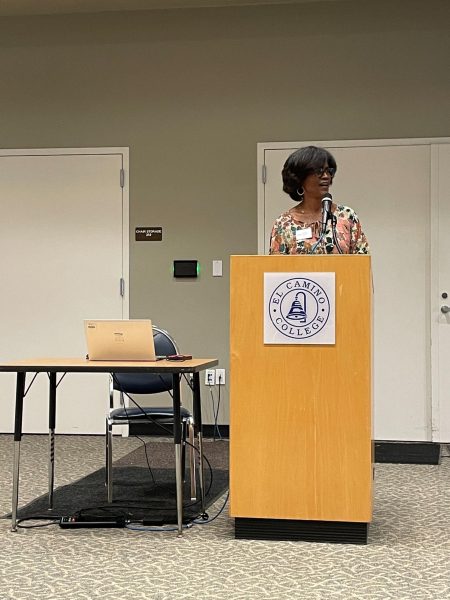
The Feb. 14 event was a collaboration between El Camino’s Architecture Department and the Library and Learning Resources Division.
Cooks had reached out to Jacobs, wanting to do something “to celebrate Black architects for Black History Month,” Jacobs said.
“I knew [Lewis] would talk about legendary architects of the distant past and could connect the dots with contemporaries of today, which is a great inspiration to show people the work they do,” he said.
Lewis is the recipient of the American Institute of Architects 2016 Whitney M. Young Jr. Award, which is given to architects who display social responsibility or address current social issues.
Lewis was also elevated to the AIA College of Fellows in December 2015, and is running as a candidate for president of the AIA in 2026.
“Fifty or 100 years from now, when people are curious about what these folks are like in 2023, most of their reference points will be the things we left behind,” Lewis said. “And if your signatures are absent from that conversation, then we can be erased from history.”



